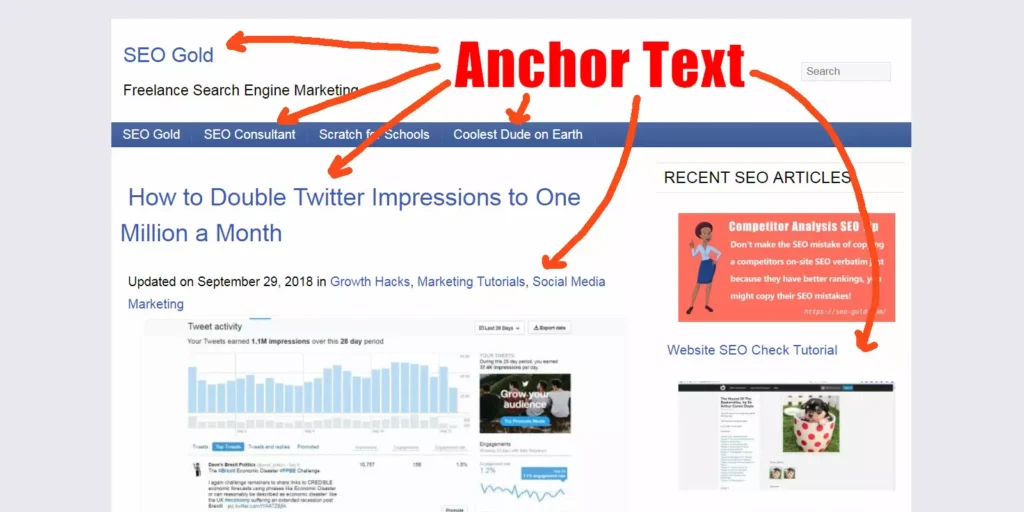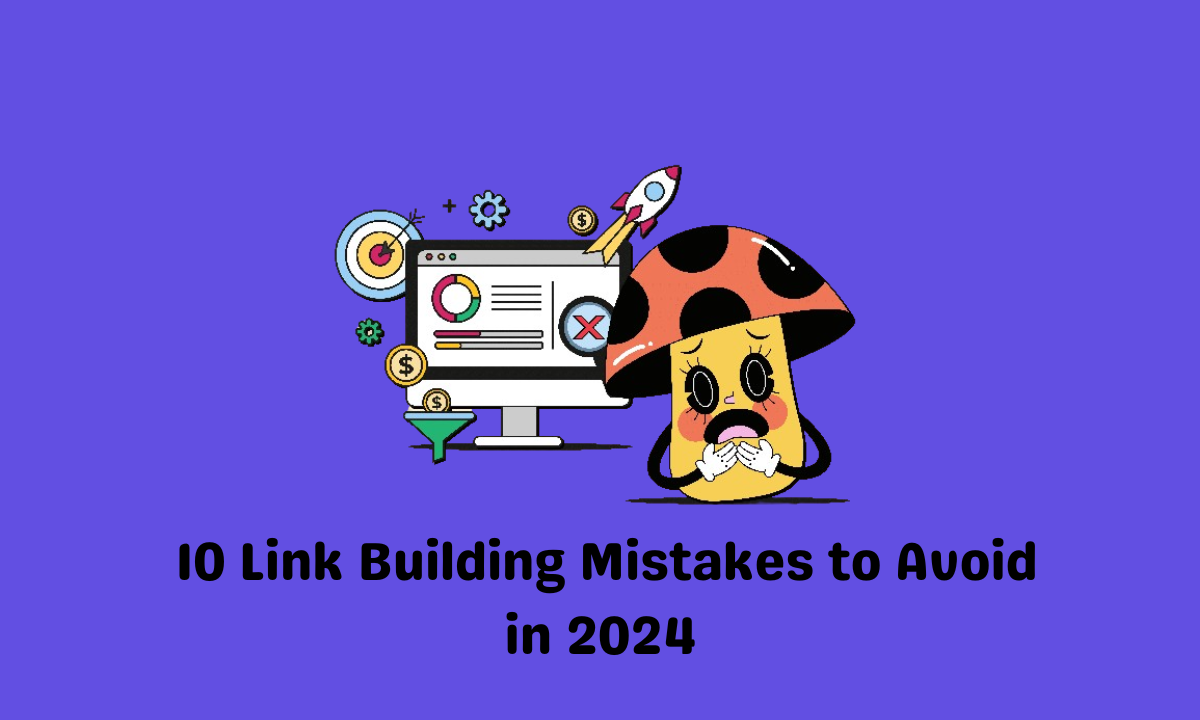In 2024, effective link-building remains a critical aspect of SEO, but it’s essential to avoid common pitfalls. Building links from low-authority or irrelevant sites can harm your site’s credibility while using poor or duplicate content can lead to penalties. Acquiring backlinks from toxic profiles and relying solely on do-follow links can also be detrimental.
Overusing exact match anchor text, building too many links too quickly, and neglecting to diversify strategies are mistakes to avoid. It’s also crucial to focus on local SEO, monitor backlink data, and disavow harmful links to maintain a healthy and effective link-building profile.
Table of Contents
Toggle10 Link-Building Errors To Steer Clear Of In Your SEO Approach
Building Links from Low Authority or Irrelevant Sites:
One of the significant mistakes in link building is acquiring links from low authority or irrelevant sites. These links fail to provide substantial SEO benefits and can even harm your site’s credibility.
Search engines prioritize high-quality, relevant backlinks when ranking websites, and links from low-authority or non-relevant sites can signal poor content quality or manipulative SEO tactics. To build a strong backlink profile, focus on Earning links from authoritative, reputable, and relevant websites that align with your industry and audience.
Using Poor or Duplicate Content:
Using poor or duplicate content in link-building efforts can severely undermine your SEO strategy. Low-quality content fails to engage users and provides little value, resulting in high bounce rates and low site authority. Duplicate content, on the other hand, can lead to penalties from search engines, as they strive to promote originality and relevance.
To build a robust backlink profile, producing high-quality, unique, and informative content that attracts genuine interest and earns valuable, authoritative backlinks is crucial.
Acquiring Backlinks from Toxic Profiles:
Acquiring backlinks from toxic profiles can significantly harm your website’s SEO. Toxic backlinks come from penalized, spammy, or irrelevant sites to your industry, signaling to search engines that your site may be engaging in manipulative practices. These backlinks can lead to penalties, a drop in search rankings, and a damaged online reputation.
To maintain a healthy backlink profile, it’s essential to regularly audit your backlinks, disavow harmful links, and focus on obtaining high-quality, relevant backlinks from reputable sources.
Solely Relying on Do follow Links:
Solely relying on do-follow links is a common link-building mistake that can hinder your SEO efforts. While the following links pass on SEO value from one site to another, focusing exclusively on them can make your link profile appear unnatural to search engines.
A healthy backlink profile should include a mix of do-follow and no-follow links, as well as a variety of anchor texts and link sources. This diversity signals organic growth and authenticity, helping to boost your site’s authority and search engine rankings.
Overusing Exact Match Anchor Text:
Overusing exact match anchor text is a detrimental link-building practice that can raise red flags with search engines. Exact match anchor text refers to using keywords in the hyperlink text that match the target keyword you’re trying to rank for.
While it can be beneficial in moderation, excessive use can appear manipulative and lead to penalties. A balanced approach involves varying anchor text with branded, generic, and partial match keywords, creating a more natural and diverse link profile that enhances SEO without risking penalties.
Building Too Many Links Too Quickly:
Building too many links too quickly can be a significant mistake in link building, as it may trigger search engine penalties. A sudden spike in backlinks can appear unnatural and suggest manipulative practices, leading to a drop in search rankings.
Effective link-building requires a gradual and consistent approach, prioritizing quality over quantity. By steadily acquiring high-quality, relevant links, you can build a robust and sustainable backlink profile that enhances your site’s authority and search engine performance without risking penalties.
Lack of Diversification in Link-Building Strategies:
A lack of diversification in link-building strategies can significantly hinder your SEO efforts. Search engines may perceive your backlink profile as artificial and manipulative if it is based solely on one kind of link or source.
Effective link building involves a varied approach, incorporating different types of links, such as guest posts, directory listings, and social media mentions, from a wide range of reputable sources. This diversity not only enhances the authenticity of your backlink profile but also maximizes the potential for organic traffic and improved search rankings.
Ignoring Local SEO:
Ignoring local SEO is a critical mistake in link building, especially for businesses targeting specific geographic areas. Local SEO helps improve visibility in local search results, driving more targeted traffic to your site. Neglecting this aspect means missing out on valuable local backlinks, citations, and listings that can boost your site’s authority and relevance in local searches.
To optimize for local SEO, ensure your business is listed in local directories, acquire backlinks from local websites, and maintain consistent NAP (Name, Address, Phone Number) information across all platforms.
Not Monitoring Backlink Data:
Not monitoring backlink data is a crucial oversight in link-building strategies. Regularly tracking your backlinks allows you to identify and address harmful links that could negatively impact your SEO. By analyzing backlink data, you can also gauge the effectiveness of your link-building efforts, discover new opportunities, and ensure the quality and relevance of your backlinks.
Utilizing tools to monitor and manage your backlink profile helps maintain a healthy and robust SEO strategy, preventing potential penalties and enhancing overall search engine performance.
Not Disavowing Harmful Links:
Not disavowing harmful links is a critical mistake in link building. Harmful links from spam, irrelevant, or penalised websites can significantly damage your site’s SEO and reputation. Failing to disavow these toxic links may lead to penalties from search engines, resulting in a drop in rankings and reduced organic traffic.
Regularly auditing your backlink profile and using tools like Google’s Disavow Tool to reject bad links helps maintain a clean and healthy link profile, ensuring your SEO efforts are effective and sustainable.
Just like the Above 10 Link Building Mistakes to Avoid. There are many commonly occurring Mistakes in Link Building Campaigns that you should avoid due to their Negative impact.
Common Link-Building Mistakes to Avoid
1. Acquiring low-quality or spammy links
- Links from spammy or low-quality websites may result in search engine penalties.
- These links can damage your site’s reputation and reduce its authority.

2. Prioritizing Quantity Over Quality
- A large number of low-quality links is less valuable than a few high-quality ones.
- Quality links from authoritative sites boost your SEO more effectively.

3. Ignoring Relevance
- Links should come from sites within your industry or niche.
- Irrelevant links provide little SEO benefit and can be seen as manipulative.
4. Using Over-Optimized Anchor Text
- Over-optimized anchor text can appear unnatural and trigger penalties.
- Use varied and natural-sounding anchor text to avoid this issue.

5. Failing to Diversify Your Link Profile
- A diverse link profile looks more natural and is less vulnerable to algorithm updates.
- Relying on a narrow range of link sources can make your site appear suspicious.
Final Point
By avoiding these common link-building mistakes, you can ensure a stronger, more resilient SEO strategy that enhances your site’s authority and ranking in search engine results. Regularly reviewing and refining your link-building practices is essential for maintaining a robust online presence.





